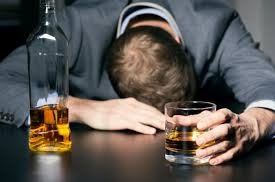Breaking Free: Understanding and Overcoming Alcohol Dependence


Is Alcohol Taking Control of Your Life?
Alcohol is a common part of social gatherings and celebrations, but when does it turn from enjoyment to dependence? Alcohol dependence, also known as alcohol use disorder (AUD), is a serious condition that affects millions of people worldwide. It is characterized by an inability to control alcohol consumption despite its negative consequences. Understanding the causes, symptoms, and treatment options is crucial in breaking free from this addiction.
What is Alcohol Dependence?
Alcohol dependence is a chronic disease that alters brain function and behavior. It goes beyond occasional drinking and becomes a compulsive habit. This condition can lead to physical, psychological, and social consequences that affect not only the individual but also their loved ones.
Signs and Symptoms of Alcohol Dependence
If you or someone you know is struggling with alcohol dependence, recognizing the signs can be the first step toward recovery. Common symptoms include:
- Strong cravings for alcohol
- Increased tolerance, requiring more alcohol to achieve the same effects
- Withdrawal symptoms like nausea, sweating, and tremors when not drinking Loss of control over drinking habits
- Neglecting responsibilities at work, school, or home due to drinking
- Continued drinking despite knowing its harmful effects
- Spending a lot of time drinking or recovering from alcohol use
Causes and Risk Factors
Alcohol dependence does not develop overnight; it is influenced by several factors, including:
- Genetics: A family history of alcoholism increases the risk.
- Psychological Factors: Anxiety, depression, and stress can contribute to dependency.
- Environmental Influences: Peer pressure and exposure to heavy drinking environments.
- Early Exposure: Drinking at a young age raises the risk of developing dependence later in life.
The Consequences of Alcohol Dependence
The effects of alcohol dependence can be devastating, impacting various aspects of life:
- Health Issues: Liver disease, heart problems, high blood pressure, and mental health disorders.
- Relationship Problems: Conflicts with family, friends, and colleagues due to behavioral changes.
- Financial Difficulties: Spending excessive money on alcohol while neglecting financial responsibilities.
- Legal Troubles: DUIs, accidents, and other alcohol-related legal issues.
How to Overcome Alcohol Dependence?
The road to recovery is challenging but possible. Seeking professional help and making lifestyle changes are essential in breaking free from alcohol dependence. Effective treatment methods include:
- Detoxification: Medical supervision to safely remove alcohol from the body.
- Counseling and Therapy: Cognitive-behavioral therapy (CBT) and support groups like Alcoholics Anonymous (AA) can provide emotional support and coping strategies.
- Medication: Some medications can help reduce cravings and withdrawal symptoms.
One such medication is Antabuse (Disulfiram), which discourages drinking by causing unpleasant reactions when alcohol is consumed. This medication, combined with therapy and support, can be an effective tool in achieving sobriety. Breaking free from alcohol dependence requires commitment, support, and the right treatment approach. Recognizing the problem, seeking help, and making lifestyle changes can lead to a healthier, alcohol-free life. No matter how long someone has struggled with alcohol dependence, recovery is always possible with the right mindset and resources.
Article Post: Editorial Team of RXShop.md
(Updated at Feb 8 / 2025)
Antabuse articles:
Some of the trademarks used in this Web Site appear for identification purposes only.
All orders are reviewed by a licensed physician and pharmacist before being dispensed and shipped.
The statements contained herein are not intended to diagnose, treat, cure or prevent disease. The statements are for informational purposes only and is it not meant to replace the services or recommendations of a physician or qualified health care practitioner. If you have questions about the drugs you are taking, check with your doctor, nurse, or pharmacist.